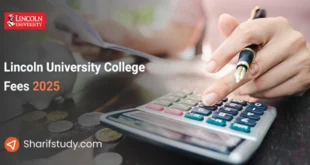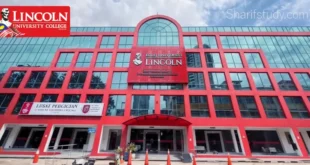PETALING JAYA: Recent modifications to the Malaysia My Second Home (MM2H) initiative could potentially revitalize the nation’s real estate market. The program’s updated criteria and financial prerequisites are designed to attract a broader spectrum of international applicants. However, experts suggest that additional efforts are necessary to increase participation in the program, especially in the face of competition from neighboring countries offering similar initiatives to foreign nationals.
Economist and Provost for Research and Innovation at Malaysia University of Science and Technology, Professor Geoffrey Williams, acknowledges that the revamped MM2H is an improvement over its predecessor. Yet, he maintains that it appears more as a financial strategy for the Immigration Department than a genuine effort to foster a community of expatriates in Malaysia.
Professor Geoffrey Williams, in his discussion with StarBiz, highlighted some drawbacks of the current Malaysia My Second Home (MM2H) program. He pointed out that it still appears unwelcoming to foreigners, mainly serving those seeking to minimize tax liabilities. “It’s particularly appealing for high-income individuals looking to establish multiple residences to avoid taxes. With less than six months’ residence in a country, one is exempt from taxes. Therefore, having residence in three countries could mean paying no taxes at all,” he explained.
Williams further noted that the impact of the MM2H program on the Malaysian economy might be limited. The recent announcement from the Tourism, Arts and Culture Ministry introduced a revamped MM2H program. This new version features a three-tiered structure and revised financial prerequisites, alongside several changes to the eligibility criteria, in an effort to enhance the program’s appeal and effectiveness.
In a significant update to the Malaysia My Second Home (MM2H) program, the government has made it more accessible by reducing the minimum age requirement from 35 to 30 years. This change opens the doors wider for younger individuals who wish to consider Malaysia as their second home.
To enhance the integrity and streamline the application process, the government now mandates that all MM2H applications be processed solely through licensed agents. These agents must be accredited by the ministry under the Tourism Industry Act 1992, ensuring a standardized and secure application procedure.
Additionally, the program has broadened its scope regarding eligible dependents. Now, children aged between 21 and 34 years, who are unmarried and not employed in Malaysia, qualify as dependents under the MM2H program. This expansion also extends to include parents and parents-in-law, offering more inclusive family options for applicants.
Professor Geoffrey Williams expressed skepticism regarding the potential economic impact of the revised Malaysia My Second Home (MM2H) program. He pointed out that the earlier claims of substantial economic benefits from MM2H were not fully realized, leading to the introduction of the Malaysia Premium Visa Program (PVIP).
Launched in September 2022, PVIP is designed as a “Residency Through Investment” model. It targets affluent foreigners by offering them the opportunity to invest in Malaysia and obtain residency for an initial period of 20 years, with the possibility of extending it for another 20 years.
Professor Williams also highlighted the challenges Malaysia faces in this arena. He noted the serious damage to Malaysia’s reputation in the eyes of potential expatriates and investors. Additionally, he mentioned the stiff competition from other countries that offer more attractive residency schemes and boast lower living costs.
He further explained that the PVIP aims to attract a specific demographic – wealthy individuals who can contribute significantly to the Malaysian economy. This focus on “the right type of people” with substantial financial means marks a strategic shift in Malaysia’s approach to attracting foreign residents and investors.
Professor Geoffrey Williams voiced concerns about the potential consequences of the latest changes to the Malaysia My Second Home (MM2H) program. He acknowledged that while these modifications might draw a larger number of applicants, there’s a risk that even affluent individuals might opt for the lower-tier options. According to him, the primary allure for these individuals is gaining residential access, rather than other benefits the program might offer. This scenario, he fears, could lead to attracting individuals more interested in tax avoidance rather than contributing positively to the Malaysian community and economy.
Emphasizing the importance of perception, Professor Geoffrey underscored the need for the Malaysian government to foster a positive and welcoming environment. He believes this is crucial for foreigners considering Malaysia as a long-term living option. The sentiment and atmosphere of the host country play a significant role in such life-altering decisions.
The MM2H program, initially launched in 2002, aimed to attract foreigners to retire and reside in Malaysia for extended periods. However, the government temporarily suspended the program in November 2019. They eventually relaunched it in October 2021, but with stricter application conditions, signifying a shift in the government’s strategy for managing and attracting foreign residency in the country.
RHB Research has highlighted a significant downturn in the Malaysia My Second Home (MM2H) market following the implementation of stricter conditions. According to their analysis, between November 2021 and September 2023, a span of 23 months, They only approved 1,905 MM2H applications. This figure contrasts sharply with the 5,610 applications approved in 2018, indicating a substantial decline in the program’s uptake.
Furthermore, RHB Research drew comparisons with the broader residential market. In 2018, the National Property Information Centre recorded 197,385 transactions in the residential sector. The MM2H approvals in that year accounted for approximately 2.8% of these transactions, providing a rough estimate of the potential market share that MM2H holders could represent.
The research also shed light on the Malaysia Premium Visa Program (PVIP), which has faced challenges in attracting applicants. One significant hurdle for PVIP is its high upfront processing fee of RM200,000, in stark contrast to the RM5,000 fee for the MM2H. As of October 2023, PVIP had only processed 57 applications, out of which just 28 cases that approved. This low rate of application and approval underscores the challenges faced by the PVIP in gaining popularity and traction compared to its predecessor, MM2H.
RHB Research has identified key real estate companies that are likely to benefit from the revised Malaysia My Second Home (MM2H) program. These include UEM Sunrise Bhd, Sunway, and Eastern & Oriental Bhd. The research firm maintains an ‘overweight’ stance on the property sector, bolstered by favorable government policies, increased investment flows, ongoing infrastructure developments, and the anticipation of a potential interest rate cut by the US Federal Reserve in the coming year. These factors are anticipated to boost demand in the property market.
On a similar note, HLIB Research commented on the impact of the revised MM2H program. They believe that the clearer conditions now provided by the program will offer developers a more precise understanding and visibility of the market. They anticipated the enhanced clarity to result in an increase in launches, especially in the high-end residential segment.
HLIB Research views these developments as overall positive for the property sector, especially for high-end residential properties. The firm maintains a ‘neutral’ outlook for the sector, with top picks including Sunway Bhd, OSK Holdings Bhd, Sime Darby Property Bhd, and IOI Properties Group Bhd. These companies stand to potentially benefit from the new dynamics introduced by the revamped MM2H program.
HLIB Research has pointed out specific dynamics within the Malaysia My Second Home (MM2H) program, particularly regarding the nationality of its participants. They noted that a significant portion of MM2H holders are Chinese, accounting for 32.8% of the total. This demographic trend could particularly benefit developments like Sunway’s project in Velocity, Jalan Cochrane, which is located in an area with a high concentration of Chinese residents.
Furthermore, the research house suggested that the MM2H program could generate broader economic benefits beyond the property sector, notably in tourism and healthcare. This is particularly relevant for companies like Sunway, which has diversified interests in senior living, healthcare, and hospitality. These sectors are likely to see positive impacts from the increased presence of MM2H participants.
However, HLIB Research also raised concerns about the increasing competition from neighboring countries. Both Thailand and Indonesia have recently launched programs similar to MM2H. Thailand introduced its Long-Term Residence Visa program in September 2022, while Indonesia debuted its 10-Year Visa Second Home Program in December 2022. These developments indicate a growing trend in the region for attracting foreign residents, which could potentially challenge Malaysia’s MM2H in attracting international applicants.
TA Research, echoing a positive outlook similar to that of other research houses, maintained an “overweight” stance on the property sector. They anticipate the sector to be a primary beneficiary of heightened domestic activities, especially due to an upsurge in infrastructure projects and investments. This optimistic view reflects the potential ripple effects of increased economic activity on the real estate market.
TA Research also noted the possible impact of the adjusted Malaysia My Second Home (MM2H) program. They believe that by relaxing certain conditions of the MM2H program, Malaysia could become more attractive to foreigners. This, in turn, could positively influence the real estate market. Relaxing the MM2H program can help Malaysia stay competitive in attracting highly skilled foreign individuals, as their residency and investment seems as significant contributions to the nation’s growth.
TA Research suggests that to enhance the appeal of the new MM2H program, the government should reevaluate the high RM40,000 monthly income requirement introduced in the 2021 revamp. This requirement could be a significant barrier for potential applicants, and reducing it could enhance the attractiveness and accessibility of the MM2H program to a broader range of individuals.
TA Research offered a specific recommendation for the Malaysia My Second Home (MM2H) program concerning the monthly income requirement. They suggested that if the Malaysian government decides to reintroduce a monthly income requirement, they should set at a more accessible level of RM10,000.
TA Research made the proposal in the context of regional competition. They pointed out that neighboring countries like the Philippines, Indonesia, and Cambodia do not have a stipulated minimum income requirement for their respective long-stay visa programs. This comparison is crucial as it highlights the competitive landscape in which the MM2H program operates. The absence of a minimum income requirement in these countries potentially makes them more attractive to foreigners looking for long-stay options.
TA Research recommends lowering the monthly income requirement to RM10,000. They view it as a strategic move to boost the competitiveness and appeal of Malaysia’s MM2H program in the Southeast Asian region. Such a change could potentially attract a wider range of applicants. It balances the need for economic contribution from MM2H participants with the desire to remain competitive with neighboring countries’ visa programs.
 SharifStudy Best way to Study in Malaysia
SharifStudy Best way to Study in Malaysia



